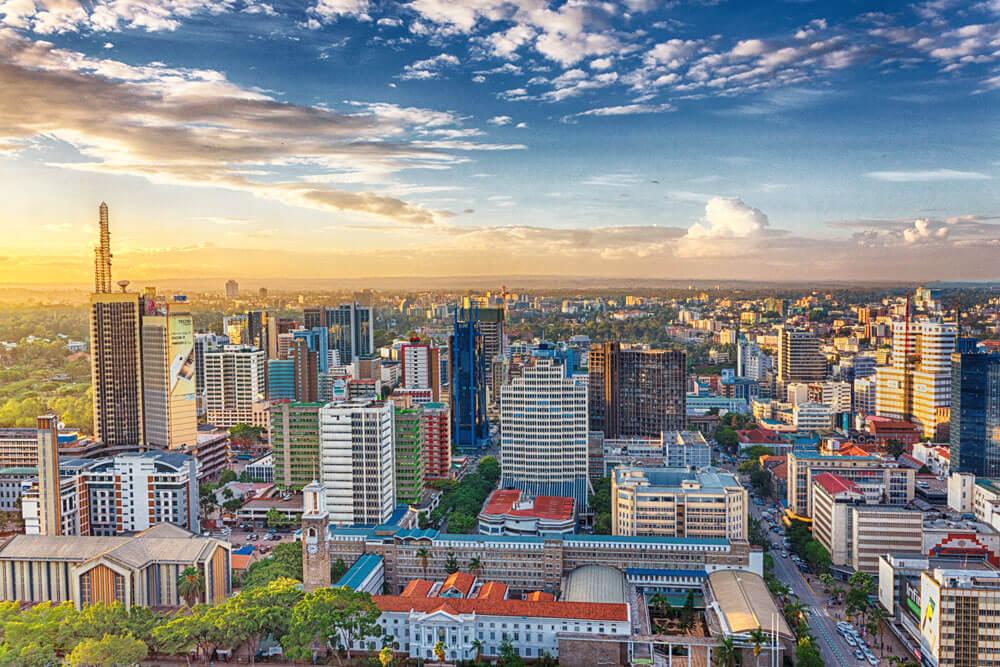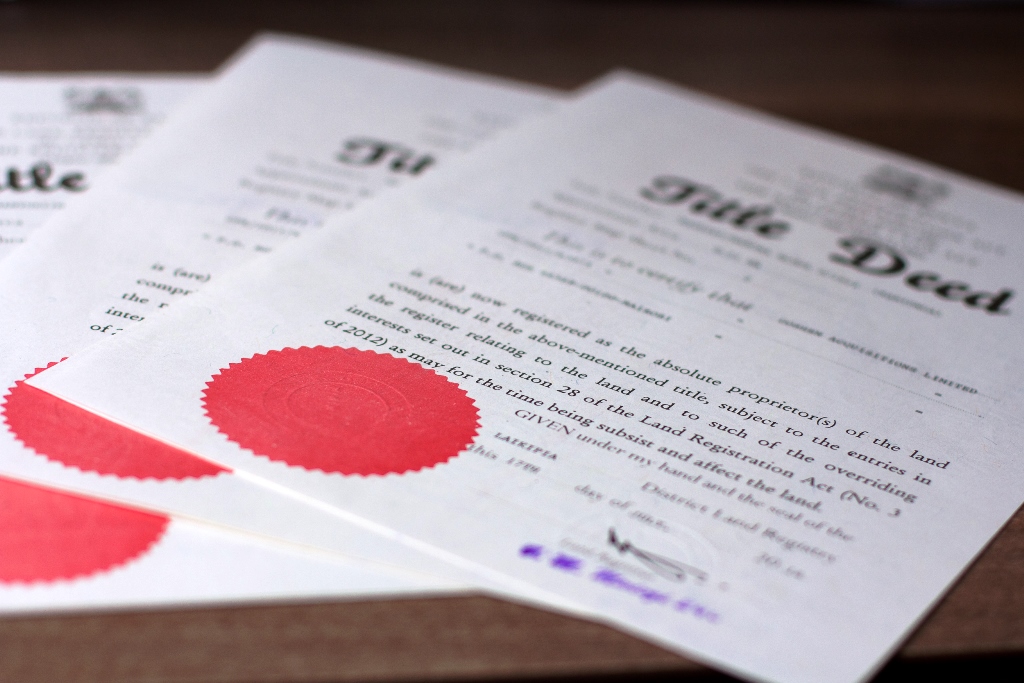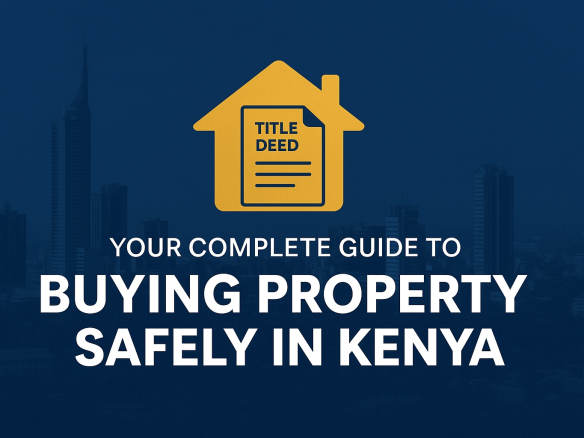Key Land Processes in Kenya: Subdivision, Title Deeds, Change of User, Conversion, and Due Diligence
Land in Kenya is one of the most valuable and contested assets. Whether you are buying, selling, developing, or investing, understanding the land processes in Kenya is essential for securing ownership, avoiding disputes, and complying with legal requirements.
This comprehensive guide explains the step-by-step land procedures — from subdivision, change of user, conversion, title processing, verification, due diligence to overall land administration in Kenya — plus answers to the 30 most frequently asked questions about land ownership and title deeds.
1. Subdivision of Land in Kenya
Subdivision is the process of dividing a large parcel of land into smaller plots for sale, inheritance, or development.
Process:
Obtain approval from the County Physical Planning Office.
Engage a licensed surveyor in Kenya to prepare subdivision maps.
Seek Land Control Board (LCB) consent if the land is agricultural.
Register new parcels at the Lands Registry.
Outcome: Each subdivided plot gets its own title deed, making it easier to sell, develop, or transfer.
2. Change of User
Change of user means altering the designated use of land (e.g., agricultural → residential or commercial).
Process:
Apply through the County Government’s Physical Planning Department.
Carry out an Environmental Impact Assessment (EIA) if required.
Secure approvals from the County Government and Ministry of Lands.
Outcome: Land is officially reclassified, allowing legal development aligned with zoning laws.
3. Conversion from Freehold to Leasehold
Foreigners and foreign-owned entities cannot own freehold land in Kenya. Instead, they hold leasehold titles (commonly 99 years).
Process:
Apply to the Ministry of Lands for conversion.
Land is re-surveyed and new lease terms issued.
A leasehold title deed is registered and issued.
Outcome: Ownership is compliant with Kenyan laws and the Constitution.
4. Title Processing in Kenya
Title processing is registering ownership after land purchase, inheritance, or subdivision.
Process:
Collect ownership documents: sale agreement, transfer forms, LCB consent, succession papers.
Pay stamp duty in Kenya (1–4% of property value).
Submit for registration at the Lands Registry.
Outcome: Issuance of a title deed, the only legally recognized proof of land ownership in Kenya.
5. Title Verification
Before purchasing land, it’s crucial to confirm that the title deed is genuine.
Process:
Conduct a land search at the Lands Registry or via Ardhi Sasa Kenya.
Verify ownership, encumbrances, caveats, or disputes.
Check if the land is earmarked for compulsory acquisition.
Outcome: Assurance that the land is genuine, dispute-free, and safe for transactions.
6. Due Diligence Report
A due diligence report provides a comprehensive review of the property before investment.
Contents:
Official search and ownership confirmation.
Zoning and land use checks.
Survey map and boundary verification.
Pending disputes, encumbrances, or government acquisition notices.
Physical site visit to confirm occupation.
- Historical interrogation of the title since government allocation. i.e. whether all the steps and legal processes were followed.
Outcome: A reliable report that protects buyers and investors from fraud or costly mistakes.
7. Land Administration in Kenya
Land administration is the overall management of land rights, ownership, and records.
Key Aspects:
Policies & laws: Constitution of Kenya, Land Act, Land Registration Act, Physical and Land Use Planning Act.
Institutions: Ministry of Lands, National Land Commission (NLC), Survey of Kenya, County Governments, Lands Registry.
Functions: Issuing titles, regulating use, resolving disputes, managing leases.
Modernization: Digitization via the Ardhi Sasa platform improves efficiency, transparency, and accessibility.
Outcome: Secure tenure, legal compliance, and orderly land use in Kenya.

30 Frequently Asked Questions (FAQs) on Land Processes in Kenya
General Land Ownership & Administration
1. Can foreigners buy land in Kenya?
No. Foreigners cannot own freehold land but may lease land for up to 99 years under leasehold terms.
2. Who regulates land ownership in Kenya?
The Ministry of Lands, National Land Commission (NLC), County Governments, and the Lands Registry.
3. What is the difference between freehold and leasehold land?
Freehold: Absolute ownership with minimal restrictions.
Leasehold: Ownership for a fixed term (usually 99 years).
4. What is the Ardhi Sasa platform?
Ardhi Sasa is Kenya’s online portal for land services, including title searches, transfers, and verification.
5. What is the role of the Land Control Board (LCB)?
It approves land transactions involving agricultural land, such as sales, transfers, and subdivisions.
Subdivision of Land
6. How long does subdivision take in Kenya?
Typically 3–6 months, depending on approvals and surveyor timelines.
7. Who can carry out subdivision?
Only a licensed surveyor registered with the Institution of Surveyors of Kenya (ISK).
8. Do I need Land Control Board approval for subdivision?
Yes, for agricultural land. Non-agricultural land does not require LCB approval.
9. Can land under a mortgage be subdivided?
Yes, but the lender’s (bank/financial institution’s) consent is required.
10. What documents are needed for subdivision?
Title deed, national ID, survey maps, LCB consent (if applicable), and application forms.
Change of User
11. Why is change of user important?
It aligns land use with zoning laws and avoids penalties or demolition of illegal developments.
12. Can I develop without change of user approval?
No, unauthorized development may lead to fines or demolition by county authorities.
13. How long does change of user take?
Between 2–9 months, depending on complexity and county approvals.
14. Who approves change of user applications?
The County Physical Planning Department in consultation with the Ministry of Lands.
15. Do I need an Environmental Impact Assessment (EIA)?
Yes, if the new land use has potential environmental impacts.
Conversion from Freehold to Leasehold
16. Why is conversion required for foreigners?
Kenya’s Constitution prohibits foreigners from owning freehold land.
17. How long does conversion take?
Usually 3–9 months, depending on Ministry of Lands processing.
18. Does conversion affect land value?
No, but leasehold land is subject to renewal and rent conditions.
19. Can a Kenyan citizen convert freehold to leasehold?
Yes, especially in areas zoned for leasehold ownership only.
20. Who issues the new lease title?
The Ministry of Lands through the Lands Registry.
Title Processing
21. How do I obtain a title deed after purchase?
By lodging the sale agreement, transfer documents, and proof of stamp duty payment at the Lands Registry.
22. How long does it take to process a title deed?
2–6 months, depending on registry workload and documentation.
23. Is a sale agreement proof of ownership?
No. Only a registered title deed is legal proof of ownership in Kenya.
24. What fees are involved in title processing?
Stamp duty (2–4% of property value), registration fees, survey fees, and legal fees.
25. Can I get a title deed without paying stamp duty?
No, unless exempt (e.g., inheritance under succession).
Title Verification
26. How do I verify a title deed in Kenya?
By conducting a search at the Lands Registry or via Ardhi Sasa.
27. What does a title search show?
Ownership details, encumbrances (charges, caveats), and restrictions.
28. How much does a land search cost in Kenya?
Around KShs. 500 to 1,500 (subject to changes by the Ministry of Lands).
29. Can a forged title pass verification?
No. A proper registry search exposes fraudulent or fake titles.
30. Should I rely on brokers for title verification?
Its always safe to use licensed professionals or conduct searches directly through official channels.
Land processes in Kenya requires knowledge, patience, and compliance with the law. From subdivision of land, change of user, conversion of titles, title deed processing, title verification, and due diligence, each process is designed to secure ownership and protect investments.
Before buying land in Kenya, always conduct due diligence and title searches to avoid falling victim to fraud. Working with a licensed surveyor, lawyer, or property valuer ensures that the process is professional, transparent, and legally binding.





Join The Discussion